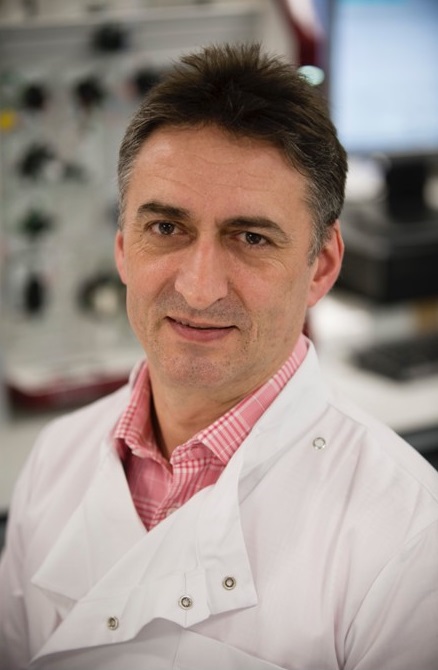Professor David I Roper FRSC
Supervisor Details
Research Interests
Research in my group is focused on the way in which pathogenic bacteria make their cell walls to grow, how that is related to the ways in which they divide and reproduce and also the relationship of these processes to the discovery and resistance to antibiotics:
- Peptidoglycan Biosynthesis: The majority of my work is concentrated on understanding the molecular mechanisms that underpin the biosynthesis of peptidoglycan pathogens with particular emphasis on the way in which cell shape is determined and controlled by RodA-PBP and the wider elongasome. This involved coordination of processes from inside to outside the cell membrane
- Bacteria Cell division: Cell division is the largest morphological change that any cell undergoes and has common elements in all forms of life. In bacteria this is controlled by a dynamic complex of proteins, many of which are located at or in the cell membrane making their study and analysis challenging. FtsZ and the proteins which interact are of key interest in that respect.
- New antibacterial drug discovery: Our studies on cell division and their linkage to peptidoglycan synthesis has an intimate connection to the targets of existing and potentially future antimicrobial drugs. We are investigating a number of these including the potential of the lipid II polymerisation process as a target for such drugs.
- Molecular Mechanisms of Antibiotic resistance: We are interested in the molecular mechanisms of antibiotic resistance, in relation to the biosynthesis of the cell wall including the mode of action of the lipid II sequestering antibiotic, vancomycin and our discovery of the way in which D-cycloserine targets three different aspects of peptidoglycan biosynthesis.
Scientific Inspiration
At school I loved all the sciences so took physics, chemistry, and biology all at A-level. My love of making things as well lead me to an interest in engineering, but alas a lack of A-level maths brought that university aspiration to an abrupt end. Since Chemistry and Biology were my best subjects, the next best thing was a degree in Biochemistry which took me to Cardiff and then Leicester to do a PhD at the start of the molecular biology revolution. At Leicester, I also became interested in X-ray crystallography and moved to a postdoc research position followed by independent MRC fellowship at the York Structural Biology Lab. A whole host of wonderful and inspirational people have helped moulded me into the molecular and structural microbiologist that I am today before coming to Warwick as a lecturer and now Professor of Biochemistry. I pride myself in still being active at the bench so that I can properly connect to the people and understand their challenges in the lab and support them wherever I can. My ethos is that science should be both challenging and fun, I hope that is a constant in my research world and those around me. My research is focussed on how bacteria divide and build their cell walls at the same time, which is the target for existing and we hope, many future antibiotics. This focus connects us with a very important biomedical issue and ensures connections to a world-wide collaborative community. Finally, I can call myself an engineer, I just do it at a molecular level.
MIBTP Project Details
Co-supervisor on projects with Professor Laura Lehtovirta-Morley, Professor Meera Unnikrishnan and Professor Séamus Holden.
